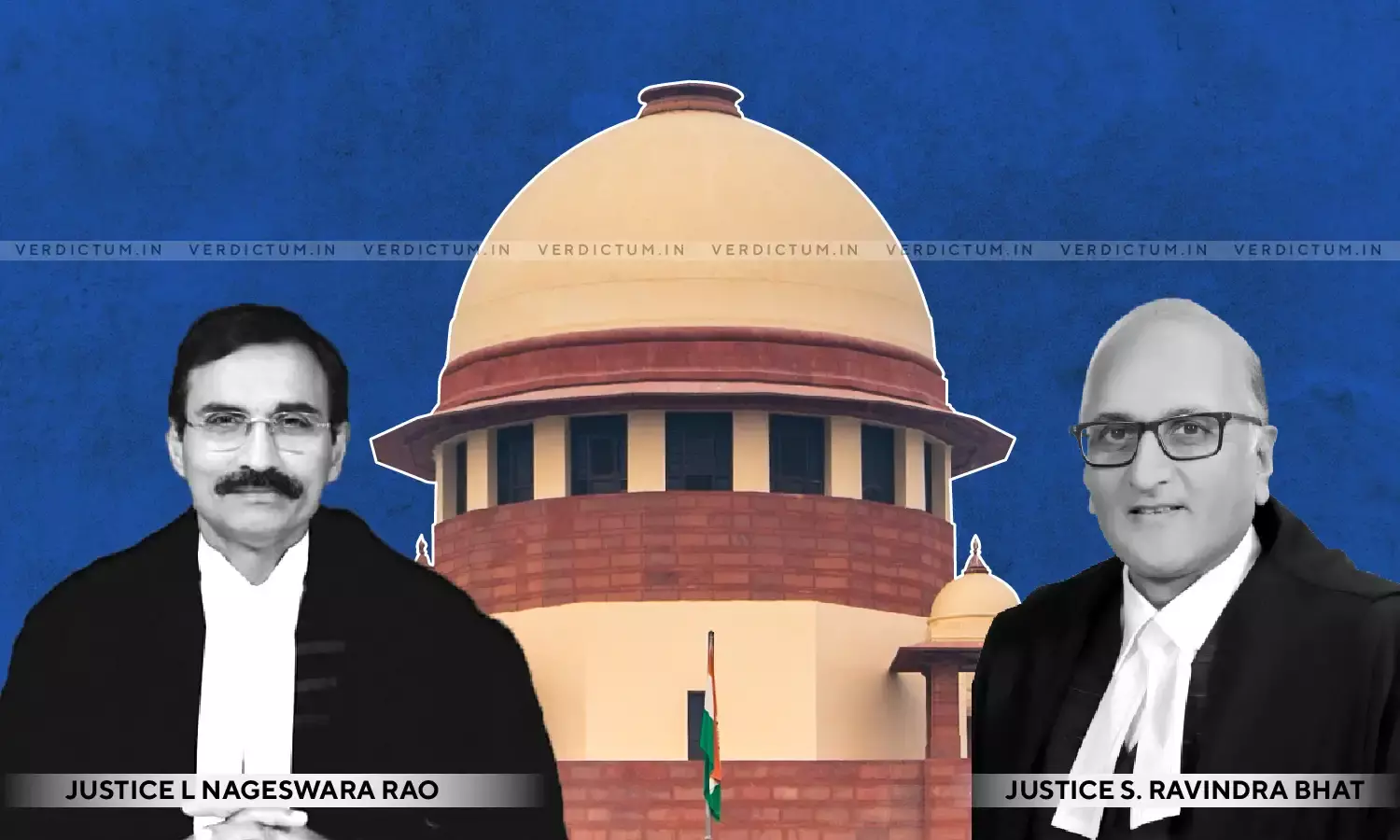Finding Of Facts Based On Erroneous Appreciation And Overlooking Of Material Evidence Can Be Reversed In Second Appeal U/s. 103 CPC: Supreme Court

A Bench of the Supreme Court consisting of Justice L. Nageswara Rao and Justice S. Ravindra Bhat ruled that the High Courts are empowered to limited factual review under section 103 of the Civil Procedure Code. The Judgment and Decree of the Trial Court was reversed in First Appeal, whereas it was upheld in the Second Appeal by the High Court. Supreme Court was considering an Appeal seeking reversal of the Judgment of the High Court as well as that of the Trial Court.
The Bench observed that the High Courts can interfere with findings of facts if the "findings of fact are palpably perverse or outrage the conscience of the court."
"Undoubtedly, the jurisdiction which a High Court derives under Section 100 is based upon its framing of a substantial question of law. As a matter of law, it is axiomatic that the findings of the first appellate court are final. However, the rule that sans a substantial question of law, the High Courts cannot interfere with findings of the lower Court or concurrent findings of fact, is subject to two important caveats. The first is that, if the findings of fact are palpably perverse or outrage the conscience of the court; in other words, it flies on the face of logic that given the facts on the record, interference would be justified. The other is where the findings of fact may call for examination and be upset, in the limited circumstances spelt out in Section 103 CPC.", the Court held.
Section 103 of the CPC defines the power of High Courts to determine issues of fact in Second Appeal and reads as follows:-
"In any second appeal, the High Court may, if the evidence on the record is sufficient, determine any issue necessary for the disposal of the appeal,-
(a) which has not been determined by the lower Appellate Court or both by the Court of first instance and the lower Appellate Court, or
(b) which has been wrongly determined by such Court or Courts reason of a decision on such question of law as is referred to in section 100."
While upholding the Judgment of the High Court interfering with the First Appellate Court's order, the Bench held that, "In the opinion of this court, in the present case, the High Court recorded sound and convincing reasons why the first appellate court's judgment required interference. These were entirely based upon the evidence led by the parties on the record. The appreciation of evidence by the first appellate court was on the basis of it having overlooked material facts, such as appreciation of documentary and oral evidence led before the trial court,"
The Court further held that,
"These important aspects appeared to have been not appreciated – and their import was overlooked. As a consequence, the first appellate court fell into error in overlooking important evidence and appreciating the record in its true perspective and reversed the decree of the trial court. Moreover, the High Court, in second appeal proceeded to examine the documents in light of the evidence led and corrected the findings as it were under Section 103. If the appellants' arguments were to prevail, the findings of fact based upon an entirely erroneous appreciation of facts and by overlooking material evidence would necessarily have to remain and bind the parties, thereby causing injustice."
The Bench also stated that the powers exercised by the High Court under section 103 can not be doubted. It stated, "It is precisely for such reasons that the High Courts are empowered to exercise limited factual review under Section 103 CPC. However, that such power could be exercised cannot be doubted. The impugned judgment does not expressly refer to that provision. In the circumstances of the case, it is evident that the High Court exercised the power in the light of that provision. Furthermore, we are also of the opinion that having regard to the overall circumstances, the impugned judgment does not call for interference in exercise of special leave jurisdiction (which is available to this Court – even at the stage of final hearing)."
The Appeal was dismissed by the Bench.
Parties - KN Nagarajappa & Ors Versus H. Narsimha Reddy.

